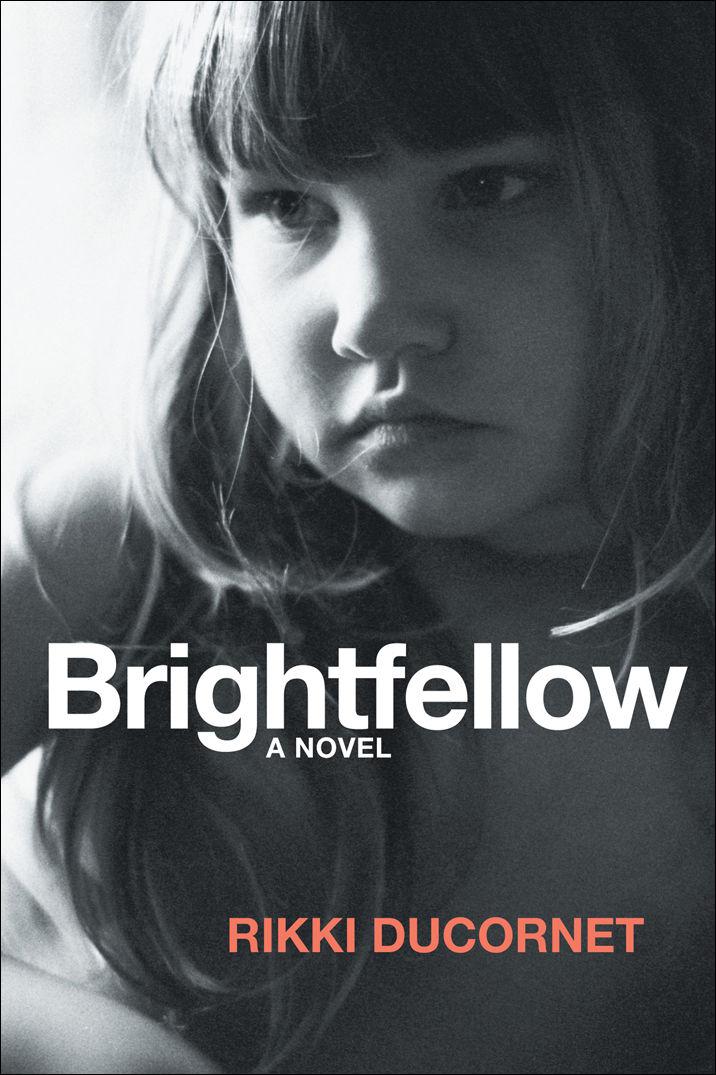
Brightfellow
کتاب های مرتبط
- اطلاعات
- نقد و بررسی
- دیدگاه کاربران
نقد و بررسی

May 2, 2016
Ducornet has made an estimable career mining often bizarre, horrifying, or otherwise unpredictable territory. This novel is perhaps her most accessible book, which she achieves without sacrificing the trademark fluidity of her language or her penchant for making heroes out of odd and unlikely figures. The hero is Stub, a damaged and orphaned teenager who hangs around a college campus, masquerading as a student named Charter Chase. He eats food he steals from houses and lives in the storage room of the library. There, Stub/Charter becomes the devoted reader of a reclusive and ignored philosopher named Verner Vanderloon, whose works of eccentric anthropology include Primates in Paradise and Cannibal Ways; Stub also becomes fascinated with Asthma, the child of a local history professor. In the singular and enchanted Asthma—who lectures her toys, speculates on the
religious leanings of the beetles in her backyard, and renames Stub “Brightfellow”—Stub finds a dreamer like himself. After he is adopted by doddering professor emeritus William Sweetbriar, the two become a sort of ersatz family to the young imposter. But Stub is harboring secrets no one suspects, and just as the discovery of his charade comes to seem inevitable, his obsession with Asthma takes a darker turn. Ducornet has written the oddest of varsity novels, one that anchors its charming caprice, philosophical fancy, and thriller-like pace to the psychological horror that lurks just beyond childhood innocence.

May 1, 2016
A lonely young man poses as a scholar to gain a sense of community. After his mother abandons the family and his father "falls apart," adolescent Stub decides to use a nearby college campus as his home, sleeping in labs, purloining clothes from gym lockers, and stealing food from faculty housing. A perpetual outsider, he watches the dysfunctional lives of the professors in "the Circle," a ring of faculty houses where the dramas of "the soused faculty wives and their brats" play out. One day, Stub is discovered in the college library by professor emeritus Billy poring over the works of an obscure anthropologist; Stub pretends to be a Fulbright scholar working on a dissertation, and Billy offers him a room at his faculty home in the Circle. Stub's new study overlooks the bedroom of 8-year-old Asthma, an imaginative little girl with whom Stub becomes obsessed. However, Stub's life as an academic imposter threatens to undo his relationships with both Billy and Asthma, the first people he has cared about since his fraught childhood. In her slim novel, Ducornet (The Deep Zoo, 2014, etc.), who is also a well-known poet, crafts a portrait of a surreal community that defies easy categorization. Like poetry, the novel's central aims are to revel in language and investigate the inner lives of characters who see a world that is more numinous (to borrow a word of Stub's) than the people around them can recognize. This makes Ducornet's choice to focus on anthropologists and young children satisfyingly apt. But readers may find themselves yearning for something more substantial from the narrative than just meditation and lyricism--the novel's hasty and confusing climax exemplifies the ways Ducornet only sporadically considers plot. An endless delight at the sentence level but lacking in big-picture propulsion.
COPYRIGHT(2016) Kirkus Reviews, ALL RIGHTS RESERVED.

July 1, 2016
If Ducornet (Netsuke) typically writes fiction that reads like fable, this story of wild child Stub is a dark fairy tale indeed, with the sparkle of black opals. After Stub's irritable mother vanishes and his loving but ineffectual father withdraws in his grief, Stub hides himself to a nearby college and lives there surreptitiously, befriending the librarian, sleeping in little-used spaces, and stealing food and clothing. As he says with typical adolescent self-regard, What if my life is not only the mirror of my own thwarted destiny, or the mirror of mankind's thwarted destiny, but the mirror of my species' capacity to overcome the worst odds? Stub is certainly a remarkable survivor but a thief and liar as well, managing to live on campus for many years and finally getting himself invited into the home of addled professor Billy. He passes himself off as Charter Chase, a Fulbright student from Australia, and he's pleased that Billy lives next door to little Asthma, the daughter of self-absorbed academics, whom Stub befriends not pruriently but because she's an abandoned child like himself. But can he keep up the charade? VERDICT A dreamily written yet unsentimental meditation on what we do to survive.--Barbara Hoffert, Library Journal
Copyright 2016 Library Journal, LLC Used with permission.

June 1, 2016
In her latest thought-provoking novel, following Netsuke (2011), Ducornet explores the deep core of humankind through Stub, a young man who lives on a university campus like a ghost, trying to escape the traumas of his childhood. He steals from professors and gym lockers in an attempt to piece together his own world from the lives of others, driven by three things: books by Verner Vanderloon, an isolated eccentric and adventurer; Asthma, a beautiful little girl whom he idolizes; and the need to survive. Stub moves fluidly around the campus as both an outsider and an insider until he is taken in by Billy, a lonely, divorced professor. Suddenly, the lives Stub had only been observing are now tantalizingly close at hand. Finally, he gets the chance to experience what it means to be cherished as a human being, but by then, it is too late. Bursting with vivid imagery, beautiful language, heartbreaking characters, and the striking perspective of an emotionally stunted man in a carefully controlled society, Ducornet's tale is unique and captivating.(Reprinted with permission of Booklist, copyright 2016, American Library Association.)

























دیدگاه کاربران